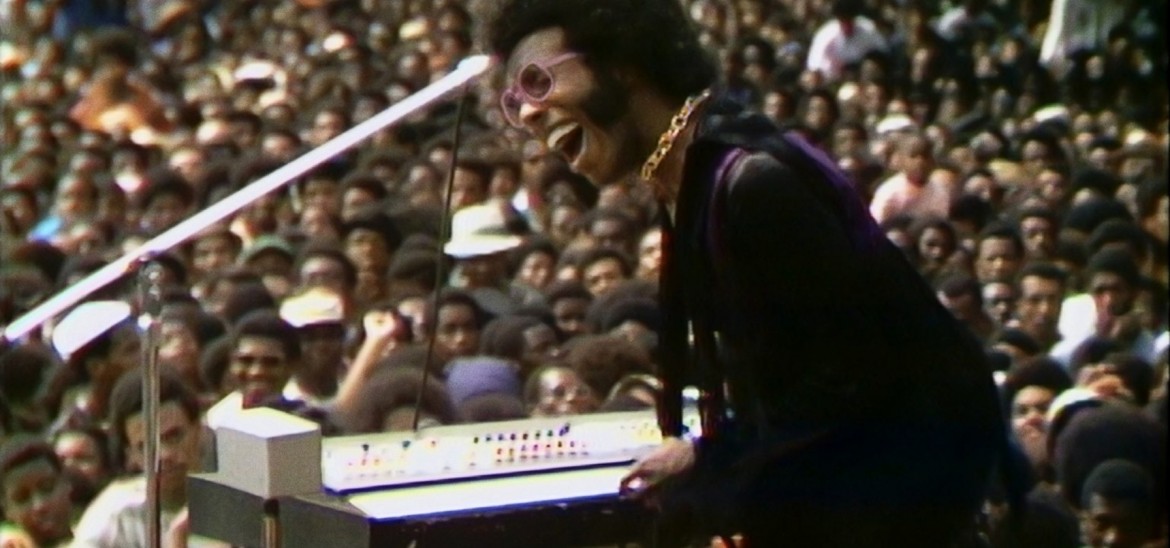Into Film Clubs
Find out everything you need to know about starting an Into Film Club.



Poet and activist Maya Angelou once said ‘you can't really know where you are going until you know where you have been'. As individuals, audiences or society, archive footage and films can allow us to revisit parts of history that may guide us in understanding the world of the past and present. Summer of Soul is a documentary that highlights the value of looking back and exploring how creativity has been used to tackle some the issues of the present moment.
Footage of the 1969 Harlem Cultural Festival sat in a basement for 50 years until it was found in 2003 by an archivist. Although it featured performances by musical legends such as Nina Simone, Stevie Wonder, and Sly and the Family Stone, to name just a few, the festival had been largely forgotten. Carefully restored and remastered by a group of archivists, the footage has been specially selected and brought to the screen by director Questlove aka Ahmir Khalib Thompson. Summer of Soul does not just look back at the feat that the festival was, but also its legacy, the context in which it took place and its impact on individuals' lives. Through a unique use of documentary conventions, Summer of Soul achieves a celebratory and fascinating depiction of a distinctive moment in history.
One way the documentary effectively engages the audience is through the use of talking head interviews. This is a method frequently used in documentaries which effectively allows for a number of subjects to talk about events from their perspective. Examples of this on Into Film + include short documentaries Faces and Eve. Questlove added another element to these interviews - showing the previously unseen footage of the festival to participants whilst on camera. In these moving scenes, the memories of attendees and artists who performed at the festival are activated. Close-ups on their faces show their emotions as they are transported back and begin to open-up about the significance the festival had on their individual lives and careers. These moments highlight the importance of archival footage and how it can be used to initiate more in-depth discussion on the effect of past events.
Similar to documentaries such as White Riot and I Am Not Your Negro, that use archive to further investigate the eras in focus, the footage in Summer of Soul is positioned within a bigger context. Released in the aftermath of widespread protests against racism and police brutality initiated by the Black Lives Matter movement, the film can also be used to explore how these issues have been faced and overcome before. With many of the festival performers, such as Nina Simone, being explicitly political within and outside their work, the documentary takes this opportunity to dig into what was taking place within America and globally during this time. Harlem's Cultural Festival took place at a time of intense social unrest. Many cultural leaders had been lost during the 1960s, including Martin Luther King, whose assassination just a year before caused riots across the country. The biopic Selma gives insight into his powerful campaigns for voting rights for Black people.The festival itself also occurred at the same time as the first moon landing and in humorous clips audience members appear unphased by the news. This was a pivotal moment in the Western world and the festival provided an anchor of release and joy for the Black community in Harlem. The documentary encourages discussions on the ways art and creative outlets can help with dealing with uncertain times and even progress social change.
Intertwining the personal with the political, Summer of Soul is a rich, uplifting and thoughtful film that is a both a portal to the past and invitation to look at where we are now. Another film that uses archive footage to reflect on the present moment, focused specifically on the effect of the COVID-19 pandemic on personal relations, is Lost Connections. Film guides for the latter and Summer of Soul can be downloaded on Into Film, and used to further explore the use of archive footage and other themes.
Viewing 3 of 3 related items.

Find out more about our streaming service, designed specifically for UK schools.